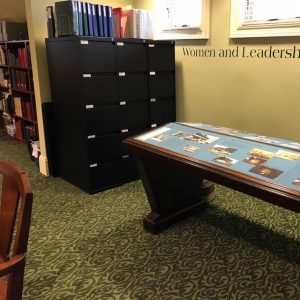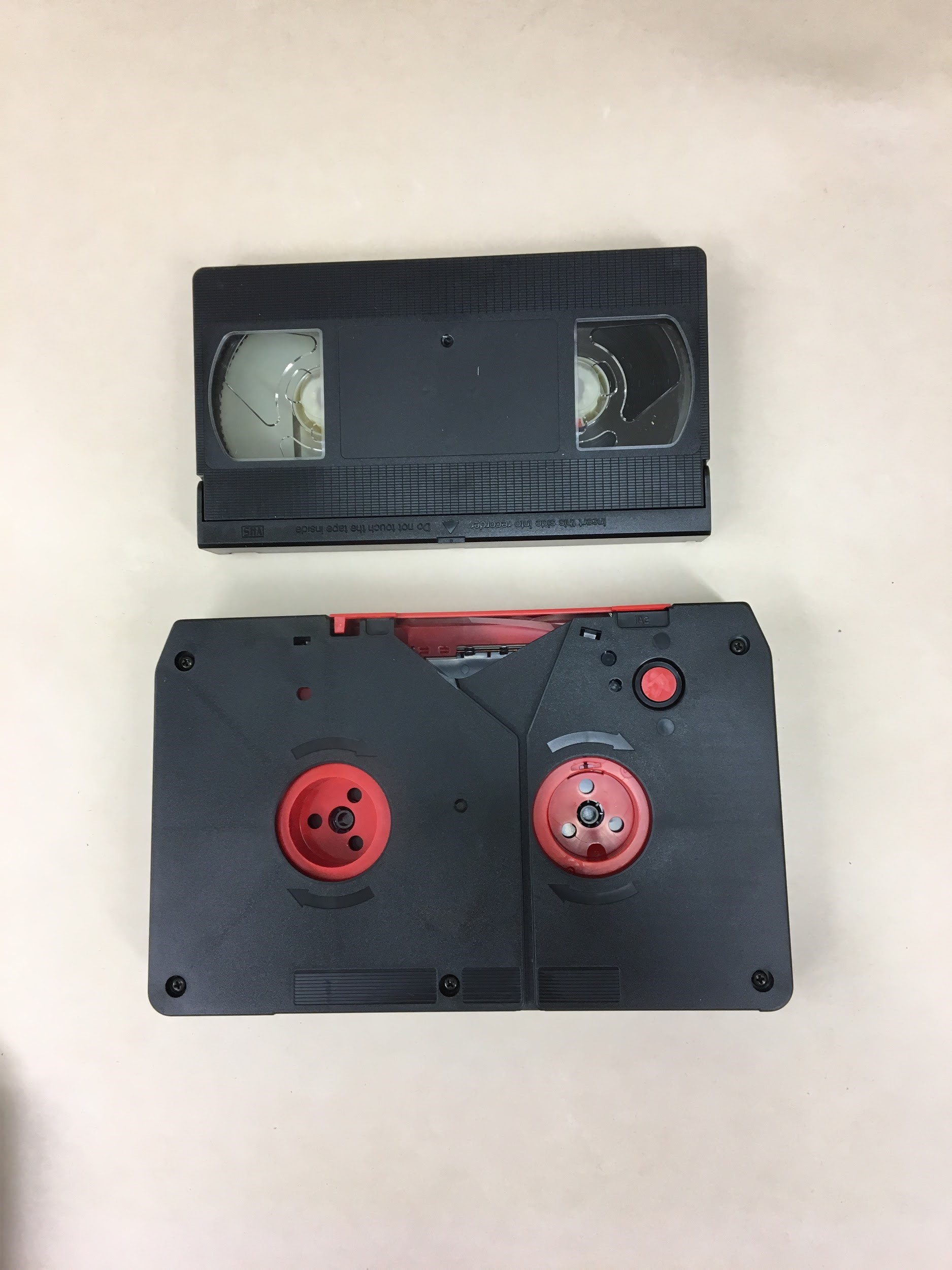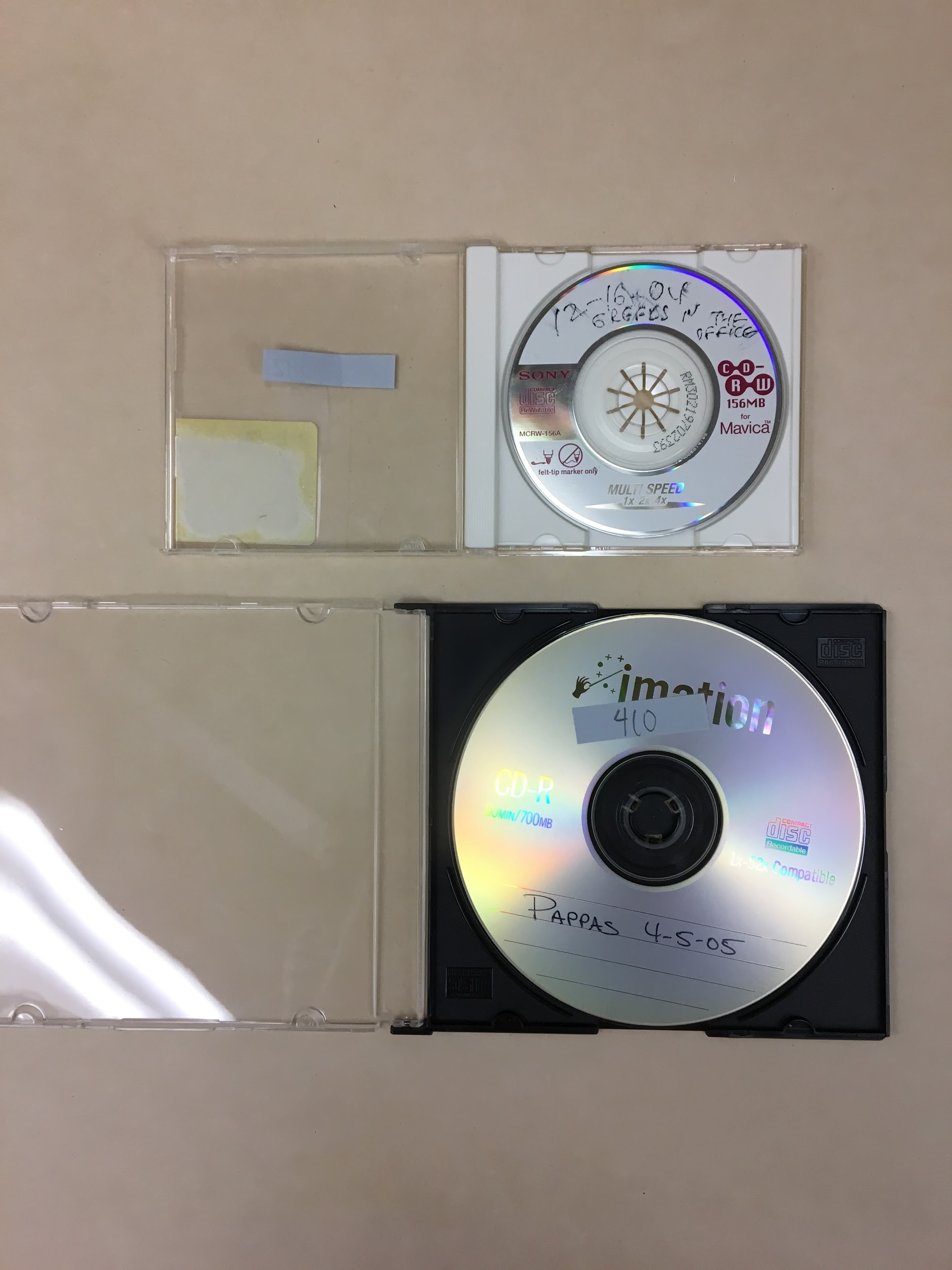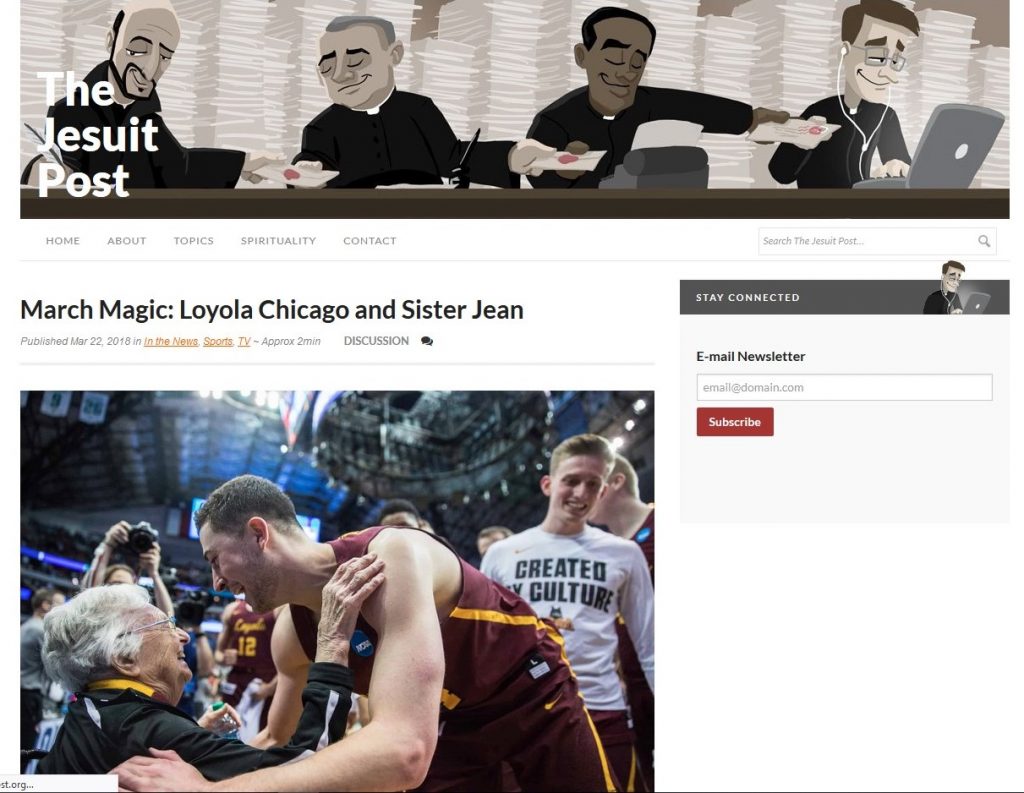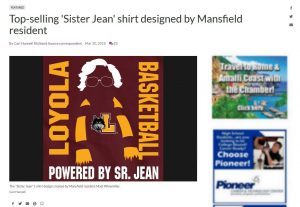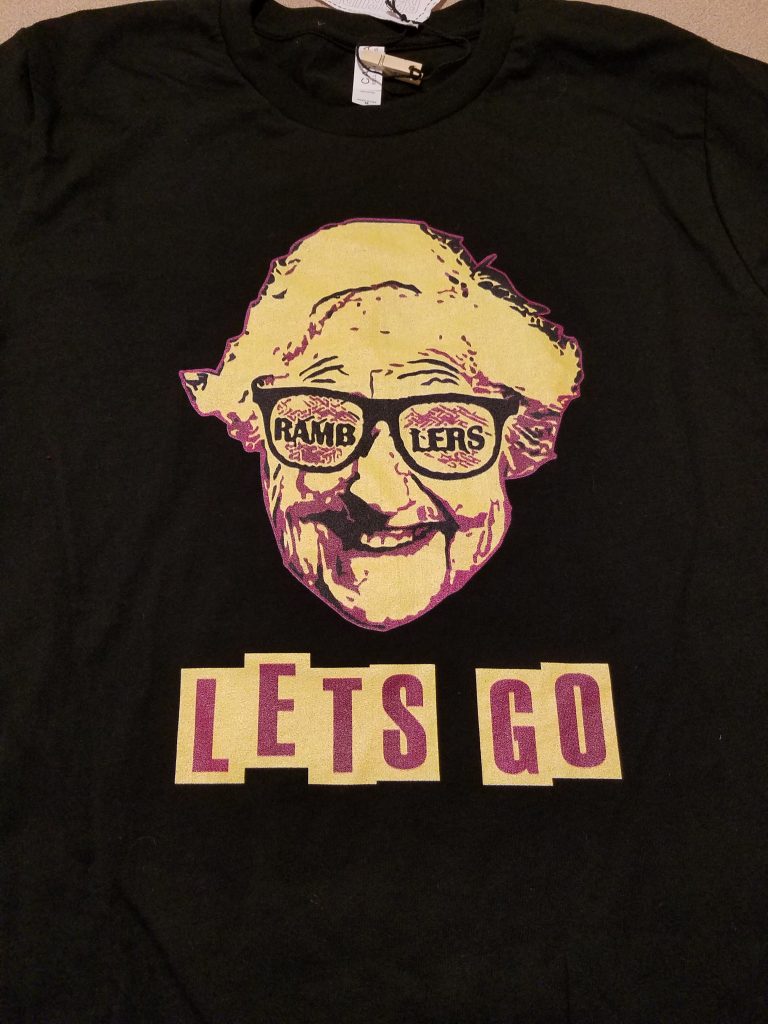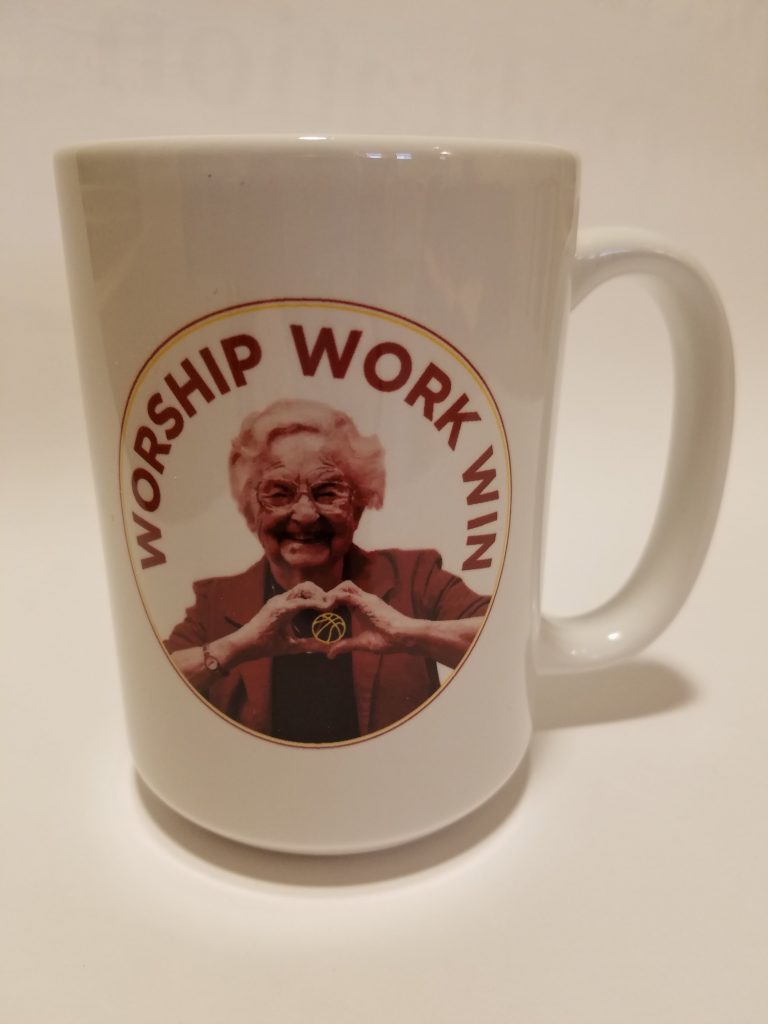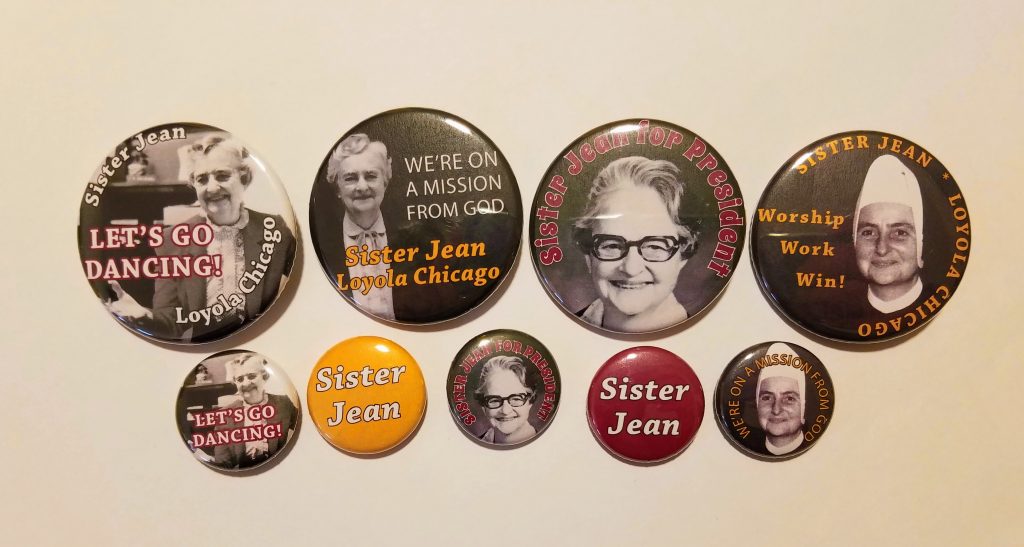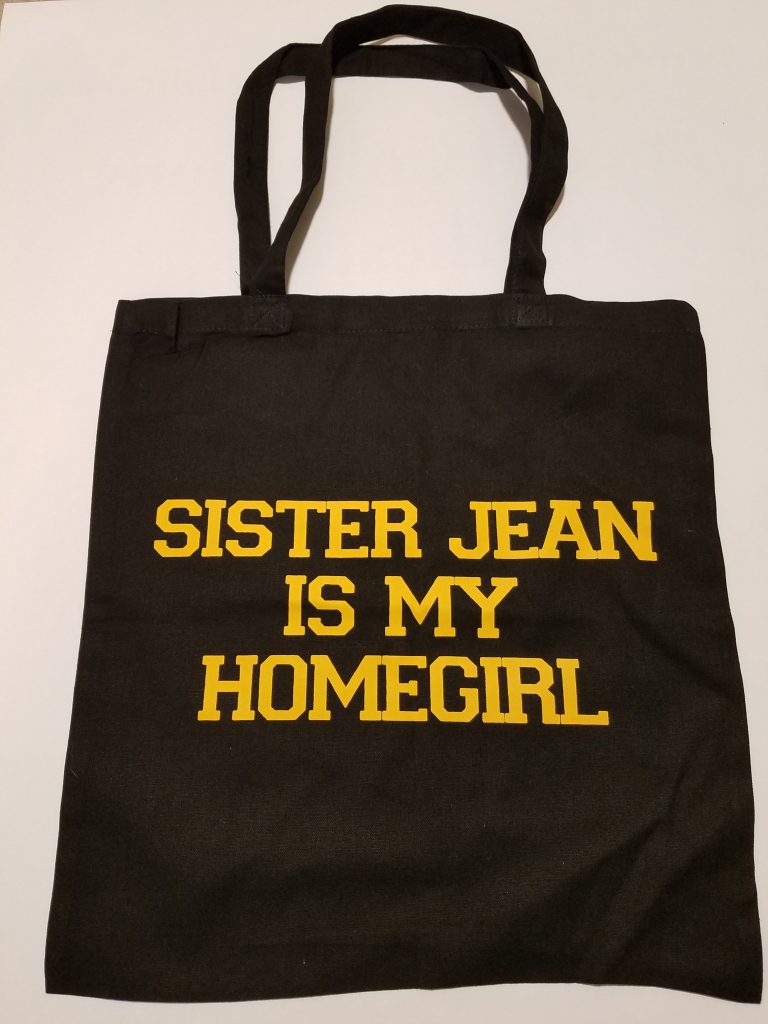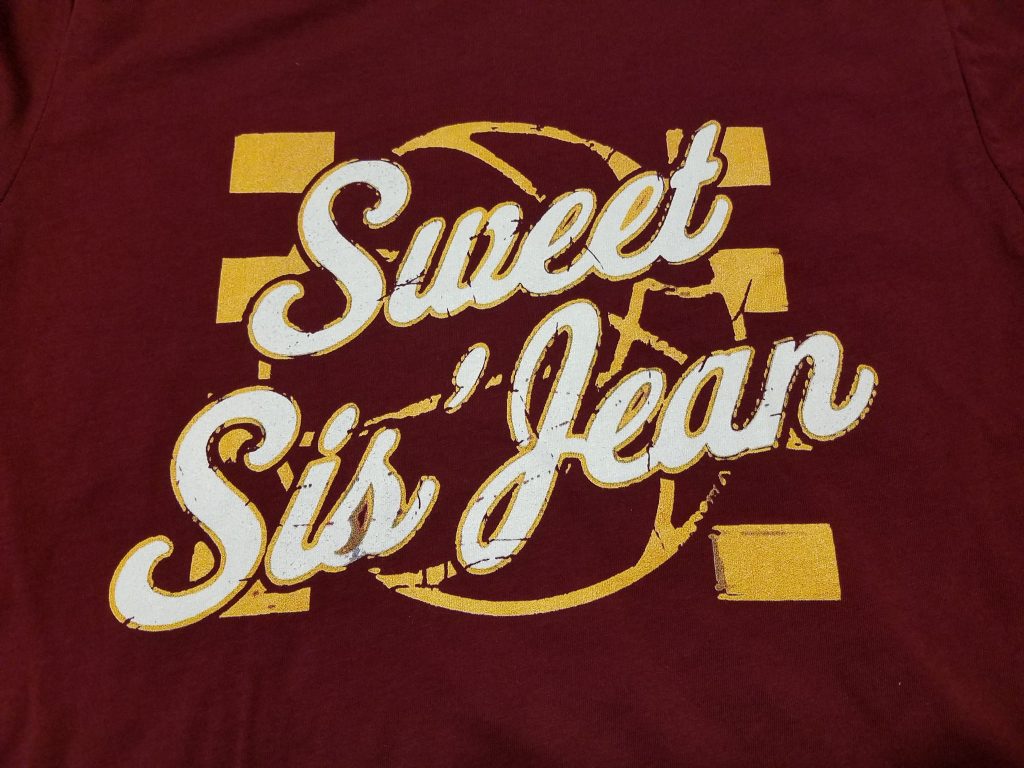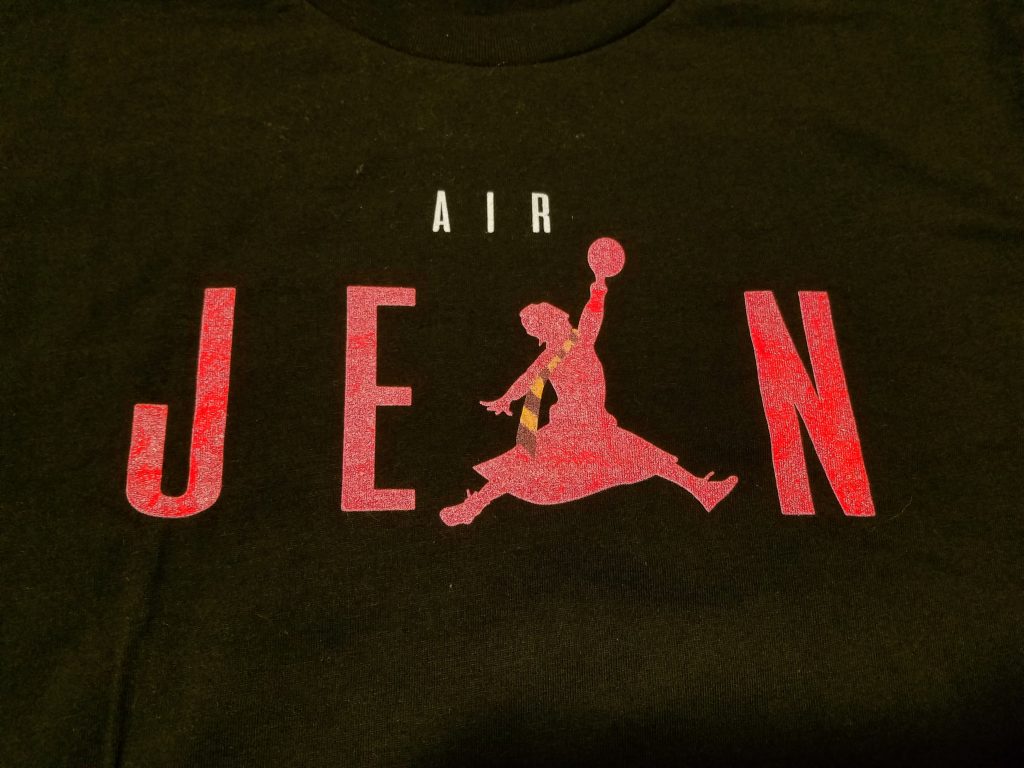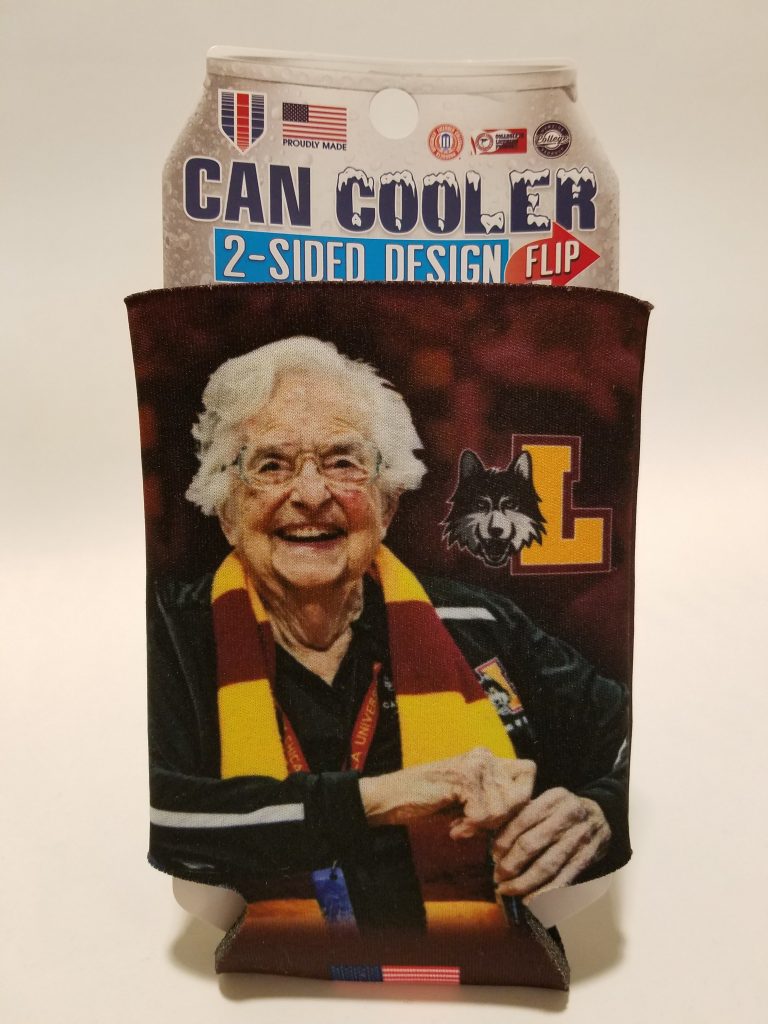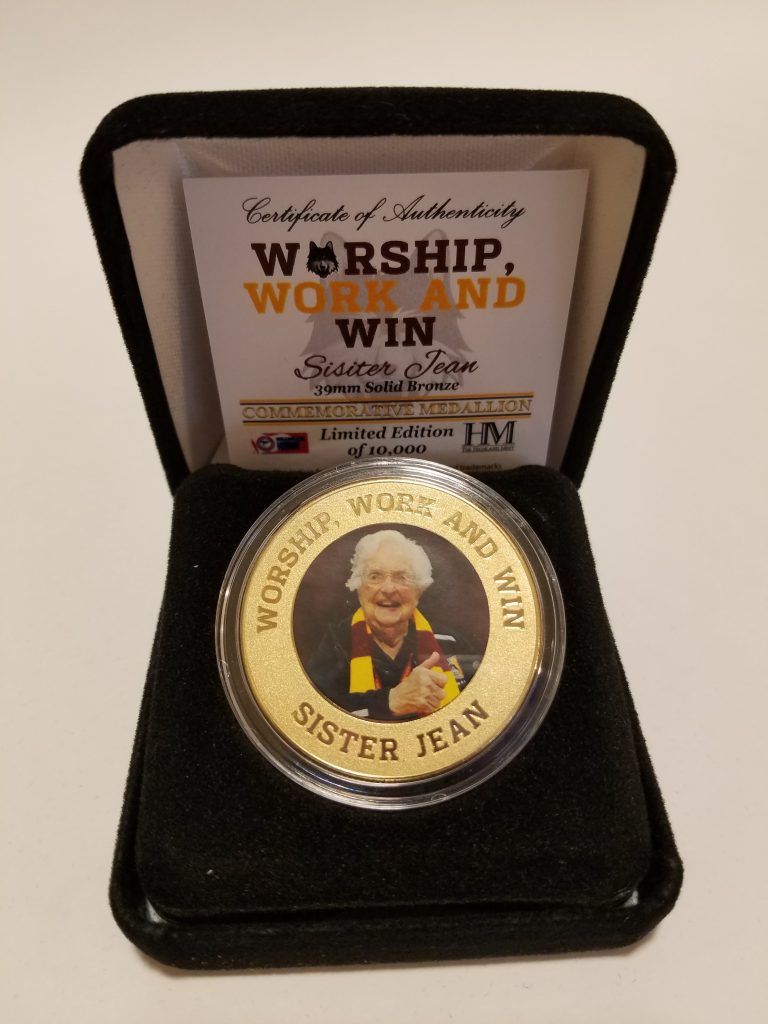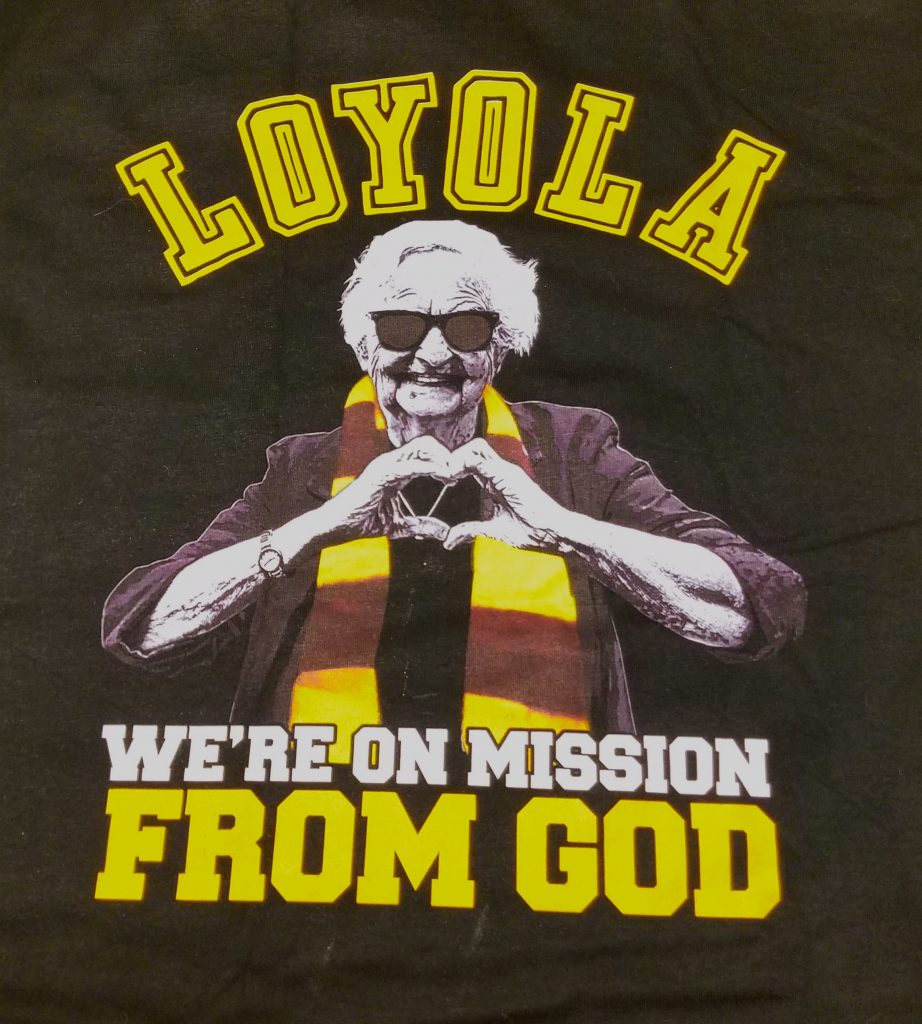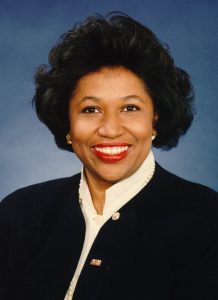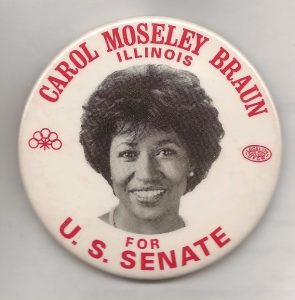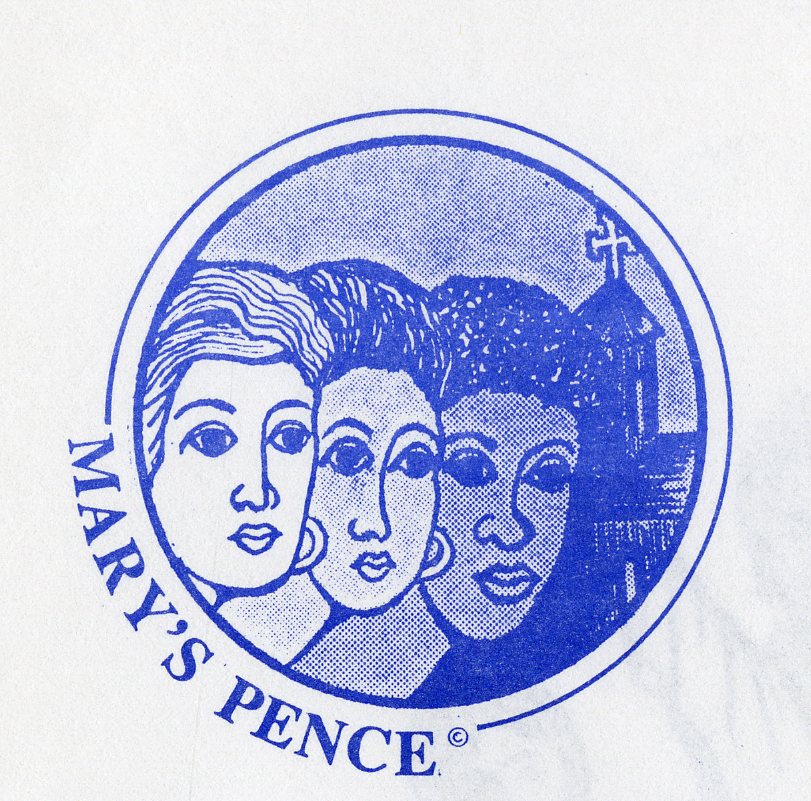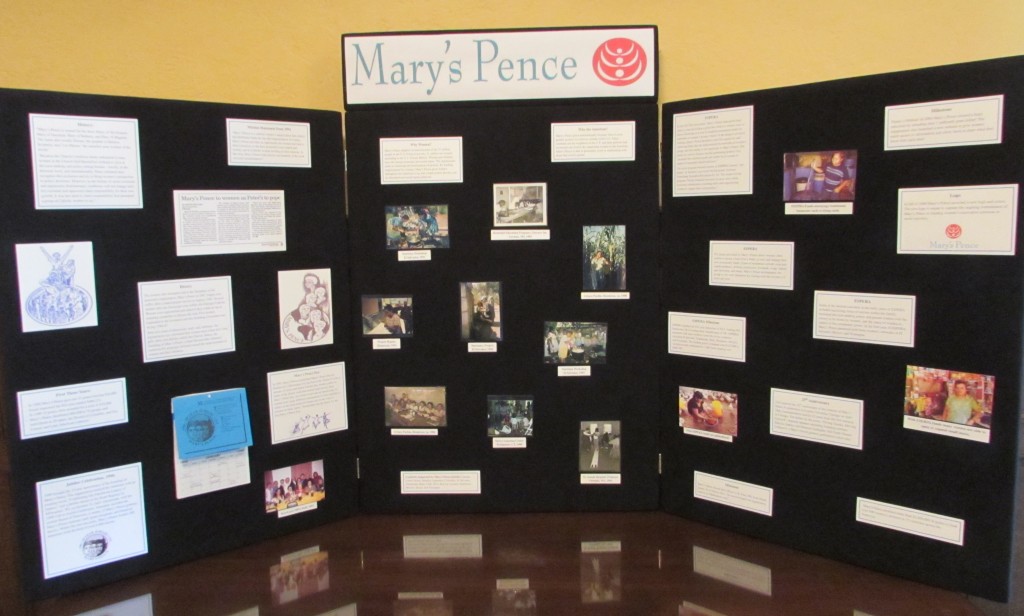Have you ever wondered what happened to your parents’ college materials, or what could happen to your own file from your undergraduate or graduate career? After working with the vast archival collection of Mundelein College (MC), I’m tempted to call my parents’ universities and see if they have archival records.
The Women and Leadership Archives was founded on the collection of MC, which was run by the Sisters of the Blessed Virgin Mary. In my work as a graduate assistant, my assignment these last few months has been to process certain MC collection series, or topic subsets within an archival collection.
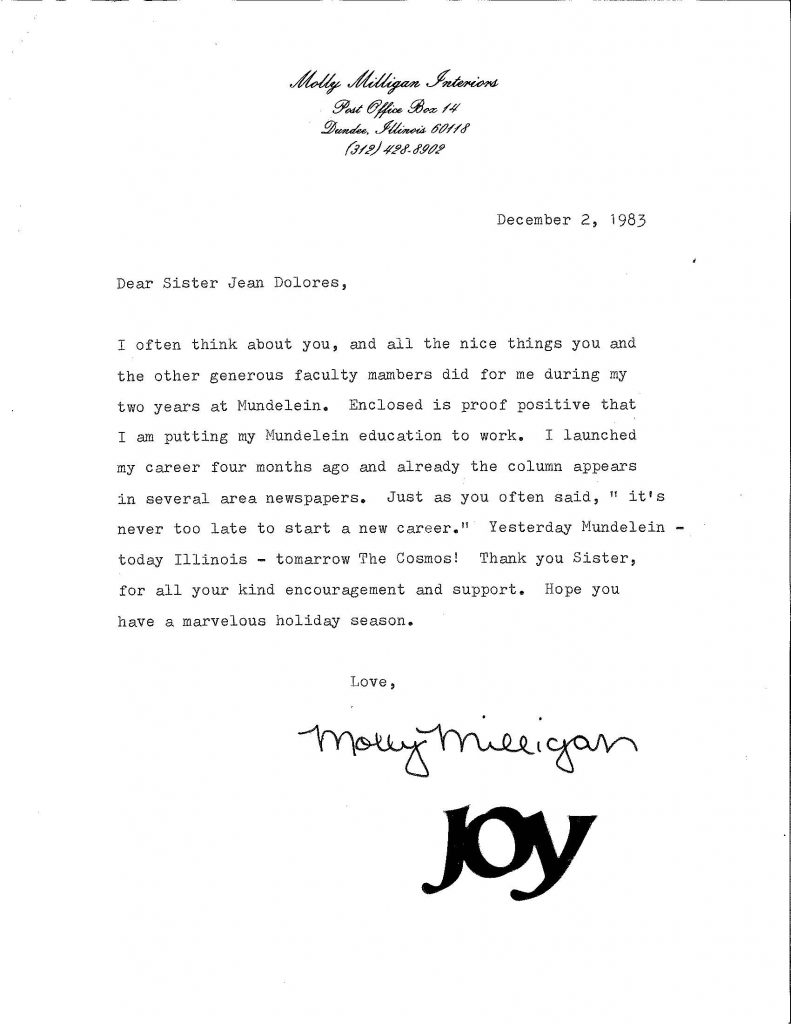
Alumna Molly Milligan wrote to the BVM nuns to express her thanks for what she learned at Mundelein.
One series in particular reminded me that listening is an integral part of learning. While organizing the MC alumnae series, which consisted of files on graduates of the college, I found endless numbers of stories. To my surprise, though it was not difficult physically, it was emotionally draining to process the alumnae series.
Though I tried not to read the materials too closely – that would slow me down – I ended up skimming many of the folders’ contents. As a result, it took me a lot longer than it should have to get through the series. However, I do not regret it: it was incredibly humbling to read these hundreds of folders and learn about the hundreds of lives they represent.
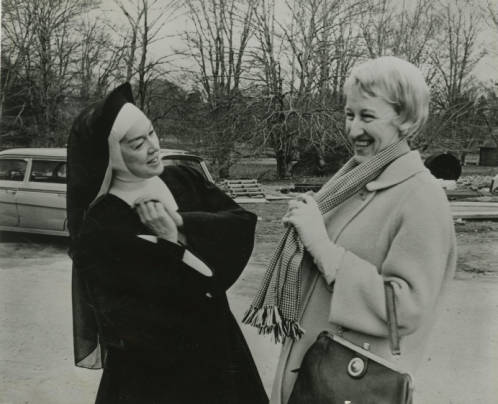
1966: Rosalind Russell and Jane Trahey (’43) on the set of “The Trouble with Angels,” a film based on Trahey’s book, “Life with Mother Superior.”
Mundelein College alumnae documented their struggles and successes from around the country. In letters sent to former University President Sr. Ann Ida Gannon, BVM, they related every aspect of their lives. Much of it was sad. Illnesses abounded – they fought cancers, personal injuries, and their families’ diseases. Some divorced their husbands, and wrote about the hurt they endured afterwards. Many women described their pain at the deaths of parents, spouses, and friends.
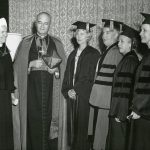
1964: (l to r) Sr. Ann Ida Gannon, B.V.M., Cardinal Albert Meyer, Honorary Degree Recipients: Claire Booth Luce, Dr, Bernice Cronkhite, Maude Clarke, and Dr. Virginia Woods Corbett-class of 1935
On the other hand, many of their stories were positive: they told of their families’ growth, their personal and professional work, and their memories of the college. All of these women loved their college and remembered it affectionately. One graduate and her husband raised ten children and sent regular Christmas cards (with updates) to Mundelein’s nuns. I felt as if I got to know the family through their formative years! Several women started their own businesses, both in Chicago and elsewhere. Helen Sauer Brown (‘44) and Jane Trahey (‘43) both launched successful careers in the business world. Still others achieved extraordinarily high academic honors. Virginia Woods Callahan Corbett (‘35) was Mundelein’s first student to obtain a doctorate, and Jacqueline Powers Doud (‘62) rose to become the president of Mount St. Mary’s College in Los Angeles.
Time after time, these folders reiterated to me that these women inspired love. The folder often began with a woman’s Mundelein student report cards and progressed through her life. But reaching the end of a folder always hurt: it usually concluded with an obituary. The obituary was often formal, but it became personalized through a letter to Mundelein nuns from the deceased’s grieving husband. In short, this series gave me little glimpses into the lives of Mundelein graduates and the deep care they inspired. They were academics, doctors, artists, and homemakers. They were parents, siblings, and – most importantly at the college – friends.
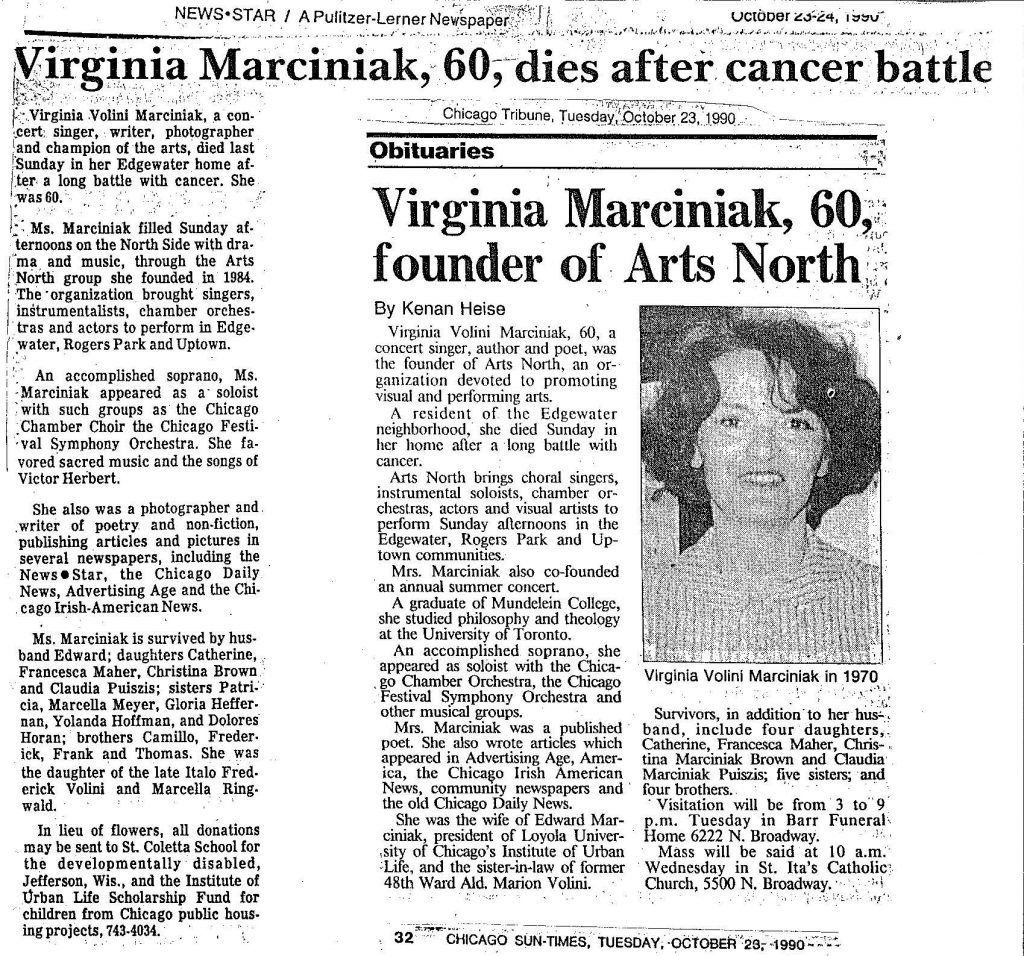
Virginia Volini Marciniak obituary, October 29, 1990
The funeral of one alumn will stay with me for a long time. After a long and involved life, Virginia Volini Marcinak (‘51) died of cancer in 1990. I learned all about her husband Ed – the president of Loyola Chicago’s Institute of Urban Life – and her daughters Christina, Claudia, Catherine, and Francesca. Virginia had a background in choral music and founded an art collective that served the Edgewater and Rogers Park neighborhoods.
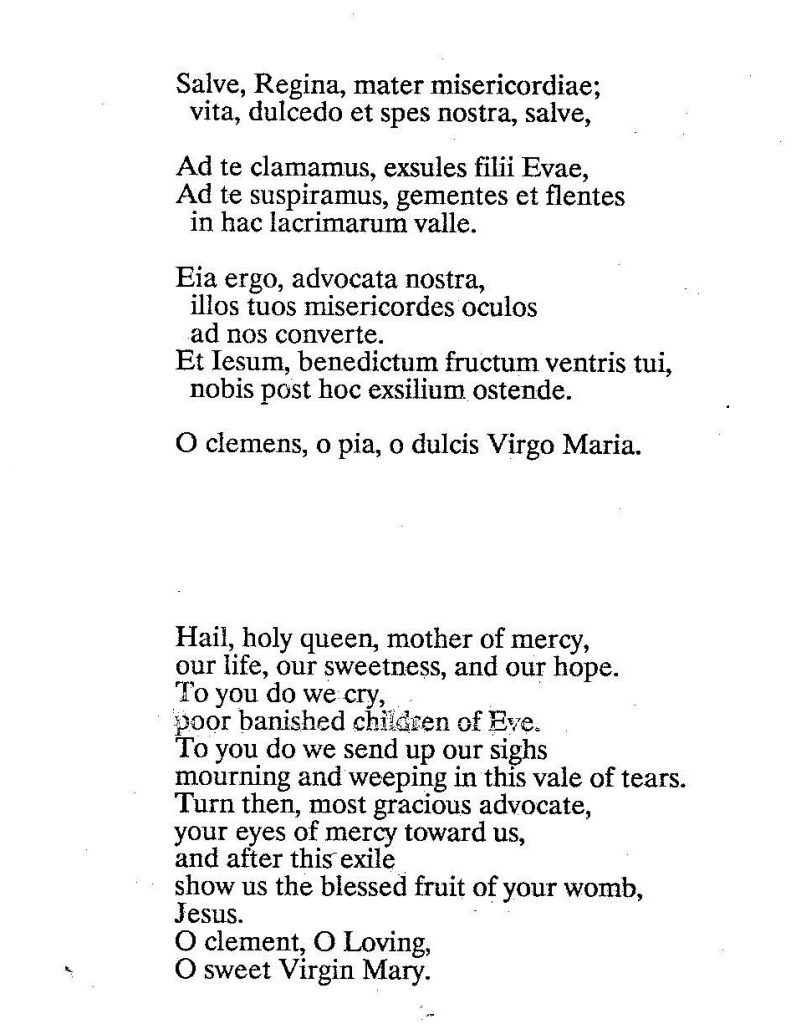
The “Salve Regina” sung at Marciniak’s funeral
Someone sent the Mundelein Archives a copy of the funeral sermon. Though it’s unclear who wrote it, the writer read it aloud at Virginia’s funeral. That person sang a “Salve Regina” to Virginia in her last hours. The last page of the sermon included the words of that song and requested that the attendees join in singing.
Perhaps I should have read fewer of the files, which were often as much about the families and spouses as the women themselves. However, I think I did the right thing. These women lived incredible lives connected by one college and its nuns. Someone should bear witness to those lives, even in a small way.
After reading hundreds of alumnae files, this woman’s tribute brought tears to my eyes. But I think that’s a good thing. Someone needed to bear witness to these lives in the archives, and that day, it was me.
Angela is a Graduate Assistant at the WLA and is in the first year of the MA in Public History at Loyola University Chicago. Originally from the West Coast, she is enthusiastic about swing dancing, choral music, and pub trivia. Angela is also a devoted National Public Radio listener.
Loyola University Chicago’s Women and Leadership Archives Blog is designed to provide a positive environment for the Loyola community to discuss important issues and ideas. Differences of opinion are encouraged. We invite comments in response to posts and ask that you write in a civil and respectful manner. All comments will be screened for tone and content and must include the first and last name of the author and a valid email address. The appearance of comments on the blog does not imply the University’s endorsement or acceptance of views expressed.

